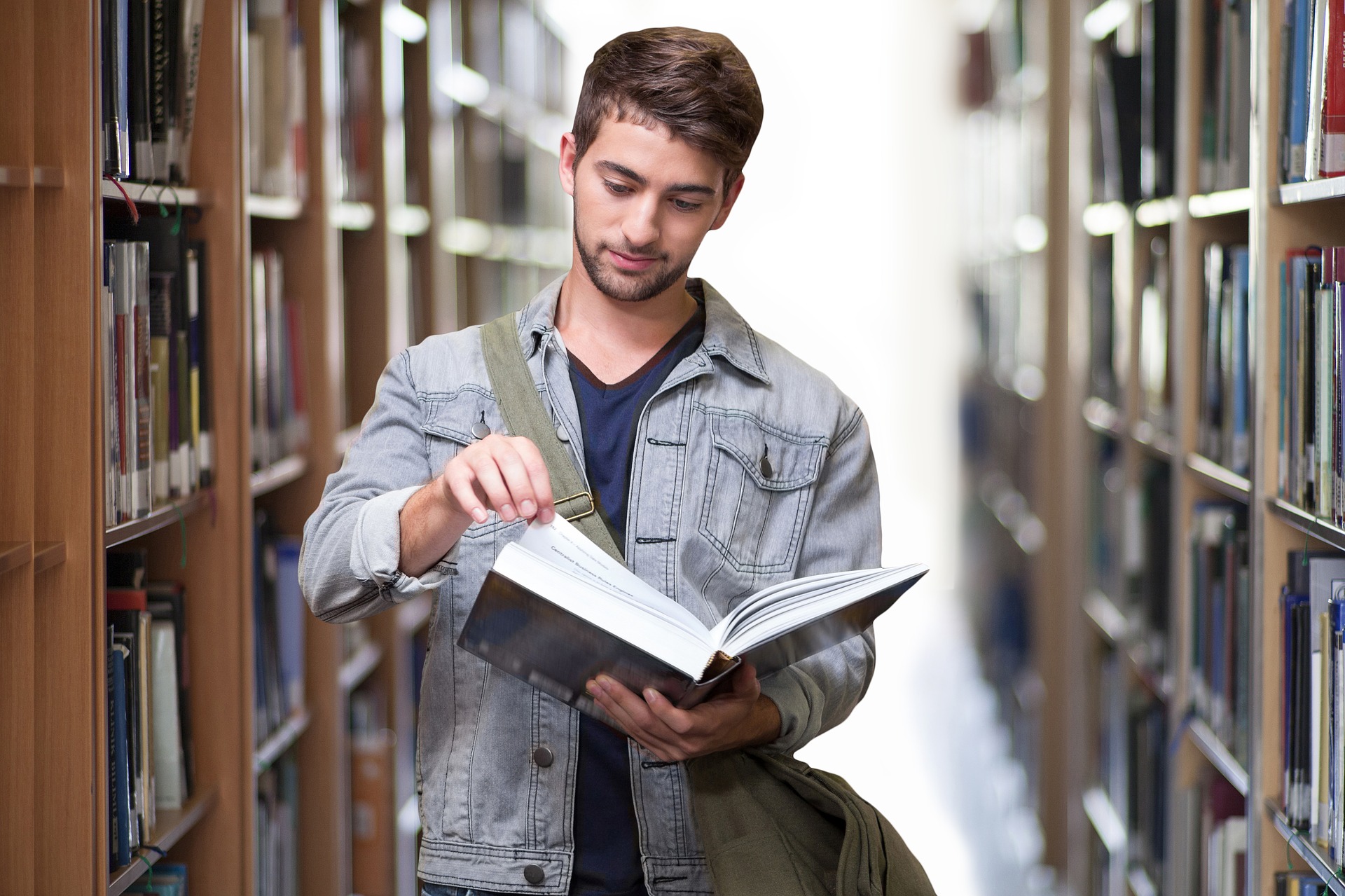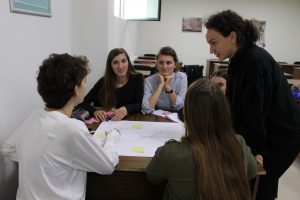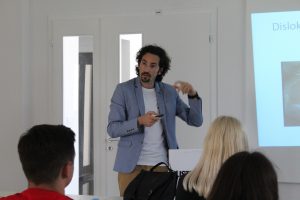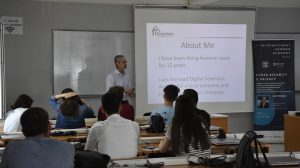
Erasmus+ is the EU’s programme to support education, training, youth and sport in Europe. Its budget provides opportunities for over 4 million Europeans to study, train, and gain experience abroad. The aim of Erasmus+ is to contribute to the strategy for growth, jobs, social equity and inclusion, promote the sustainable development of its partners in the field of higher education, and contribute to achieving the objectives of the EU Youth Strategy. UBT participates in this programme and has a high number of partner providers across Europe that offer student and staff exchange placements.
The Erasmus+ Programme contributes to the achievement of:
- the objectives of the Europe 2020 Strategy, including the headline education target2;
- the objectives of the strategic framework for European cooperation in education and training
- the sustainable development of Partner Countries in the field of higher education;
- the overall objectives of the renewed framework for European cooperation in the youth field
- the objective of developing the European dimension in sport, in particular, grassroots sport, in line with the EU work plan for sport;
- the promotion of European values in accordance with Article 2 of the Treaty on European Union
For more information about Erasmus+ programme, please visit the European Education and Culture Executive Agency or the Kosovo Erasmus+ Office.
UBT has a profound experience in cooperation with international universities. Within Erasmus + credit mobility program we are consistently looking for partnerships, aiming at increasing the number of exchange students, and staff in order to further expand our cooperation and internationalization.
International Offices and Faculty Coordinators at partnering institutions are responsible of assisting the exchange students and staff. Information on academic calendars, course catalogues, visa application procedures, grading systems, contact persons, accommodation, housing facilities, and insurance possibilities will be shared amongst institutions. Moreover, partners will share information, as needed, for reporting purposes. After the mobility, returning beneficiaries will receive recognition for their experience abroad and will be reintegrated by being given the opportunity to share their experience for the benefit of their peers, colleagues, and their institution.
Besides Erasmus+ partners, UBT has also signed many other regional and international agreements with partner universities who are committed to excellence in education and research.
To see the full list of UBT partners click here.
Every year about a considerable number of students come to UBT to study thanks to the Erasmus+ programme. In turn, many students from UBT go abroad to study at other European universities. Decisions on study, education, training, and work/study behavior is made on the basis of each person’s dignity, without prejudice, and based on objective criteria and factors. Besides well-off youth, UBT strives to enable individuals with fewer opportunities to apply for open positions and study in line with available financial and other resources. These aspects are mandatory for all members of UBT as set by the Code of Ethics and UBT Regulations for Non-Discrimination.
UBT classifies students with fewer opportunities, who can receive a financial top-up from the Erasmus+ Programme, as following:
-
- Students with social barriers – young people who are discriminated against (due to their gender, race, religion, sexual orientation, disability, or other factors), young people with weak social skills, young and/or single parents, orphans, young people from broken families, and so on.
- Students facing financial challenges – such as those with a low quality of living, a low income, a reliance on the social security system, long-term jobless youth, homeless youth, young people in debt or in financial difficulties, and so on.
- Disabled students – students with mental (intellectual, cognitive, learning), physical, sensory, or other impairments.
- Students with learning disabilities – early school-leavers and school dropouts, young individuals with low school performance due to a distinct cultural/linguistic background etc.
- Students with cultural disparities – such as young immigrants or refugees, or descendants of immigrants or refugees, young members of a national or ethnic minority, young people with language and cultural integration issues, and so on.
- Students with health issues – such as those who have chronic health issues, severe diseases or psychiatric ailments, or those who have mental health problems.
- Students with geographical obstacles – who come from distant, rural, or hilly locations, young people living on peripheral regions, young people from underserved places (limited public transportation, insufficient facilities, abandoned villages), and so on.
In many cases, individuals may fit into several of the categories described above at the same time (e.g. a teenage mother who lives in a remote village). An individual should not automatically be included in the “fewer-opportunity” group simply on the basis of one characteristic. A student has to have at least three exclusion indicators to be in the ‘fewer opportunities’ group. These indicators are defined based on an online survey that students complete which is part of the application process.
Specific measures that UBT already uses to ensure participation of those with fewer opportunities:
– Inclusion and diversity are part of the criteria to select applicants for nomination
– UBT organizes Info Sessions in order to offer guidance, help with the application process, documents.
– Forms to be used for application are clear, short, and understandable.
– For incoming participants with disabilities a family member or accompanying person can come to Kosovo for the whole period of the exchange.
– Language learning opportunities are offered by the Language Institute at UBT

Incoming Students
The exchange plays an important role in sustaining UBT’s cosmopolitan atmosphere. The Erasmus+ student mobility program is available to students currently at one of our exchange-partner universities who would like to study at UBT. The mobility experience is approved and recognized as part of your studies for a semester or full academic year. Some degrees will also support shorter durations. For further details about the program and admission requirements, download the Application Guide for Incoming Students below.
Outgoing Students
A stay abroad is a good idea. It strengthens flexibility and versatility, deepens and expands professional and linguistic knowledge, engages students with a foreign culture, opens up new perspectives, changes self-assessment, and gives you additional self-confidence. If you are thinking of going abroad for a while, you should check the Application Guide for Outgoing Students that can be downloaded below. In case you have further questions, plan a visit to the International Relations Office well in advance. The staff there or the coordinators of the various exchange programmes can give many important tips and hints for planning your stay abroad

Students' Testimonials
“At the very beginning I was totally confused but now I can say for sure that Erasmus+ is about learning to love the diversity, exploring the world, and discovering the uniqueness of every single voice you hear, of every single landscape you see.”
“The thing which gives me the greatest joy is to feel that I have travelled all around the world through the eyes of every person I have met during my Erasmus+ experience.”
“It is the result of being temperate, well-balanced, responsible, conscientious, and, of course, motivated.”
UBT welcomes and sends staff members for short term visits within the framework of agreements with a number of universities from the EU countries – based on annual quotas.
Decisions on recruitment, career, promotion, training, income, leave, and work behavior are made on the basis of each person’s dignity, without prejudice, and based on objective criteria and factors. UBT strives to enable individuals with disabilities to apply for open positions and work in line with available financial and other resources. These aspects are mandatory for all members of UBT as set by the Code of Ethics and UBT Regulations for Non-Discrimination.
UBT classifies staff with fewer opportunities as following:
- Staff with social barriers: people who are discriminated against (due to their gender, race, religion, sexual orientation, disability, or other factors), people with weak social skills, single parents etc.
- 2. Disabled staff: staff with mental (intellectual, cognitive, learning), physical, sensory, or other impairments.
- Staff with cultural disparities – such as young immigrants or refugees, or descendants of immigrants or refugees, members of a national or ethnic minority, people with language and cultural integration issues, and so on.
- Staff with health issues – such as those who have chronic health issues, severe diseases or psychiatric ailments, or those who have mental health problems.
- Staff with geographical obstacles – who come from distant, rural, or hilly locations, people living in peripheral regions, people from underserved places (limited public transportation, insufficient facilities, abandoned villages), and so on.
In many cases, individuals may fit into several of the categories described above at the same time (e.g. a mother who lives in a remote village). An individual should not automatically be included in the “fewer-opportunity” group simply on the basis of one characteristic. A staff has to have at least three exclusion indicators to be in the ‘fewer opportunities’ group. These indicators are defined based on an online survey that staff complete which is part of the application process.
Specific measures that UBT already uses to ensure participation of those fewer opportunities:
– Inclusion and diversity are part of the criteria to select applicants for nomination
– UBT organizes Info Sessions in order to offer guidance, help with the application process, documents.
– Forms to be used for application are clear, short, and understandable.
– For incoming participants with disabilities a family member or accompanying person can come to Kosovo for the whole period of the exchange.
Incoming Staff
Within staff mobility, staff from partner institutions can come to Kosovo in order to:
- undertake teaching assignments (STA)
- participate in seminars, training, sessions and workshops (STT)
- participate in work shadowing (STT)
Staff members are selected by their home university (usually through the respective international office) and typically pay 3-5-day visits to the host department or institute of the UBT. Upon confirmation by the host department, the International Office at UBT provides further information and helps incoming staff members with further procedures as needed.
For more information about UBT and Kosovo, download the Guide for Incoming Staff below.
Outgoing Staff
Full-time academic staff employed at UBT can be eligible to benefit from Erasmus+ Staff Mobility for Teaching/Training.
ICM Staff Mobility for Teaching enables academic staff to spend a teaching period between min. 5 days, at least 8 teaching hours, at an ICM partner institution of UBT.
ICM Staff Mobility for Training enables administrative and academic staff to take part in a training program at an ICM partner institution of UBT with the aim of modernization of administrative processes and also increasing internationalization of UBT. Participants spend a period of training of min. 5 working days.
The applications will be evaluated based on the following criteria:
- The relevance of the field of teaching/training
- Departmental diversity
- Previous participation in Erasmus+ programme
- Compliance with the Internationalization strategies and aims of UBT
For more information about application procedures, download the Application Guide for Outgoing Staff below.
Staff Testimonials
“Mobility helped me to become internationally competent and well-prepared for further job requirements. It was a valuable experience that has opened new perspectives.”
“This was a very productive visit as I had the chance to present my research to my colleagues there through some seminars I delivered as well as through extended discussion.”
Capacity-building projects in the field of higher education are transnational cooperation projects, based on multilateral partnerships, primarily between higher education institutions from Programme and eligible Partner Countries. The aim of these projects is to:
- modernise, internationalise and increase access to higher education
- address the challenges facing their higher education institutions and system
- increase cooperation with the EU
- voluntarily converge with EU development in higher education, and promote people to people contacts, intercultural awareness, and understanding
UBT, being part of Erasmus+ Program, has participated in many Capacity Building Projects. Information about KA102 projects and higher education institutions who were partners in these projects can be accessible by clicking Learn More.





